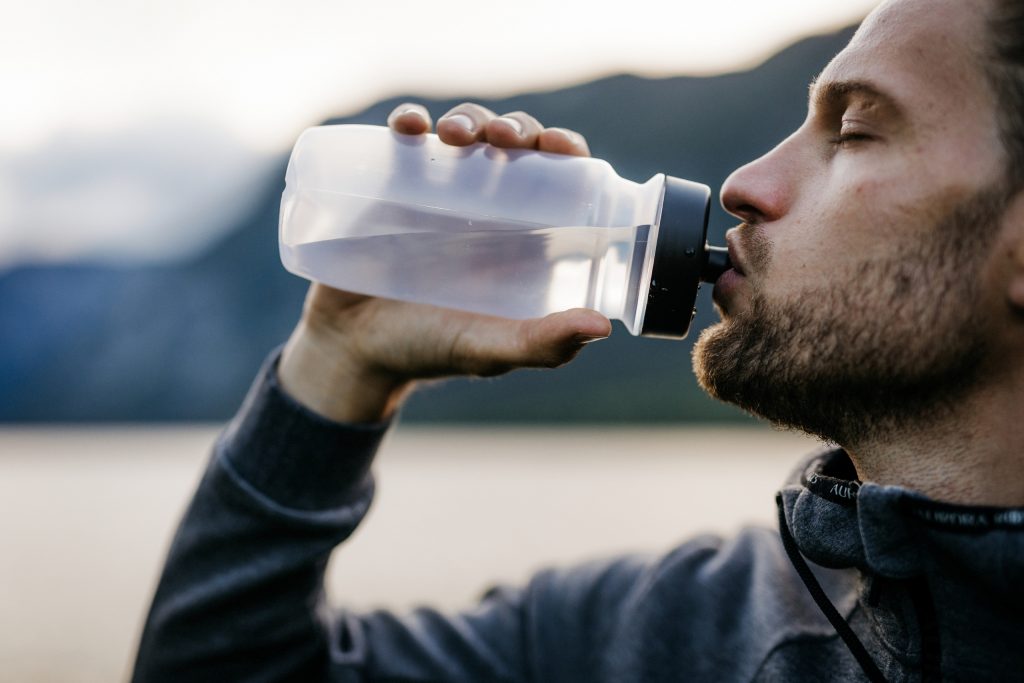To stay healthy and help your body work better, drink a lot of water. A lot of things inside our bodies need water to work. But sometimes water might not be enough to stay hydrated, like when we’re working out hard or our body’s chemicals need to clear out. Electrolytes are minerals like sodium, potassium, calcium, and magnesium, which play a crucial role in transmitting nerve impulses, regulating fluid balance, and ensuring muscle contractions.
This is to emphasize the importance of proper hydration, specifically the significance of no sugar hydration and the difference between water and electrolytes. Now that we know more about these things, we can learn more about how to stay healthy and improve our health in general.
What are Electrolytes?
Electrolytes break down in acidic liquids like water, which lets electricity pass through them. Many body systems depend on them. They help keep the balance of liquid inside and outside our cells. You need these charged particles to send electrical messages to nerves, muscles, and the body to keep the right amount of fluid in the body.
Sodium, potassium, calcium, magnesium, chloride, and bicarbonate are some of the most common ions in the body. Ions of sodium and potassium are especially important for keeping the heart and nerves working right. Calcium ions are needed for muscles to tighten, and magnesium ions are part of more than 300 chemical processes in the body. On the other hand, chloride ions help keep the balance of fluids, and bicarbonate ions help keep the pH balance of our blood.
Electrolyte levels that are out of balance can be bad for our health. For instance, being dehydrated or sweating too much can lower salt and potassium levels, which can cause muscle cramps, weakness, and even heart rhythm problems. Similarly, too much calcium or magnesium can make your muscles weak and make you confused.
To keep your electrolyte levels in check, you need to eat a healthy diet full of electrolyte-rich foods like veggies, fruits, whole grains, and lean meats. For proper pH levels, it’s also important to stay refreshed by drinking enough water throughout the day. Medical experts may sometimes recommend electrolyte pills to fix abnormalities that are caused by certain medical illnesses.
The Role of Electrolytes in Hydration
Electrolytes are very important for staying hydrated because they keep the balance of fluids. These minerals, including sodium, potassium, chloride, and magnesium, are dissolved in bodily fluids and help to regulate the movement of water in and out of cells.
When it comes to fluid balance, electrolytes ensure that the body can effectively transport water across cellular membranes. Sodium and chloride are particularly important for this process, as they help maintain the proper balance of fluids inside and outside the cells. This balance is necessary for optimal cell function and overall hydration.
In addition to fluid balance, electrolytes also play a vital role in muscle function. The contraction and relaxation of muscles depend on a delicate balance of sodium, potassium, and calcium. These electrolytes facilitate nerve impulse transmission, allowing muscles to contract and relax smoothly. A lack of electrolytes can disrupt this process, leading to muscle weakness, cramping, and spasms.
During physical activity or excessive sweating, electrolyte levels can become unbalanced, leading to dehydration. It is necessary to replenish these lost electrolytes to maintain proper hydration and ensure optimal muscle function. Consuming electrolyte-rich foods or drinks, such as sports drinks or fruits, can help restore the balance of these essential minerals.
Overall, electrolytes are vital for fluid balance and muscle function. Maintaining adequate levels of these essential minerals is crucial for optimal hydration and overall health.
Essential Electrolytes for Hydration
Electrolytes are vital for maintaining proper hydration levels in the body. Three essential electrolytes for hydration are sodium, potassium, and magnesium.
Sodium is perhaps the most well-known electrolyte. It helps regulate fluid balance in the body by attracting water and helping it stay within the cells. It is commonly found in table salt and various processed foods. However, excessive sodium intake can lead to high blood pressure, so it is important to consume it in moderation.
Potassium is another crucial electrolyte that plays a vital role in hydration. It helps maintain proper fluid balance within the cells and supports the functioning of nerves and muscles. Good sources of potassium include bananas, oranges, potatoes, and leafy greens. Consuming potassium-rich foods is particularly important for athletes or those who engage in rigorous physical activity, as they lose potassium through sweat.
Magnesium is not as commonly mentioned as sodium and potassium, but it is equally important for hydration. It helps maintain proper nerve function and supports muscle relaxation. Magnesium deficiency can lead to muscle cramps and fatigue. Good sources of magnesium include nuts, seeds, whole grains, and dark leafy greens.
To ensure adequate hydration, it is important to maintain a balanced intake of these electrolytes. Drinking enough water is crucial, but replenishing electrolytes is equally important, especially during intense exercise or hot weather conditions when electrolytes are lost through sweat. Consuming a variety of fruits, vegetables, and whole foods can help provide a sufficient intake of sodium, potassium, and magnesium for optimal hydration.
Benefits of Electrolyte Drinks
Electrolyte drinks are a popular choice for athletes and individuals engaging in physical activities. They offer numerous benefits to the body, making them an essential part of any active lifestyle.
One of the primary benefits of electrolyte drinks is their ability to replenish lost electrolytes during physical activities. When we sweat, our bodies lose important minerals like sodium, potassium, and magnesium. Electrolyte drinks provide an easy and convenient way to replace these essential minerals, helping to maintain the body’s electrolyte balance.
Moreover, electrolyte drinks are known to prevent muscle cramps and fatigue. When we exercise, our muscles work harder, leading to the buildup of lactic acid and the depletion of electrolytes. By consuming electrolyte drinks, we can reduce the risk of muscle cramps and delay muscle fatigue, allowing us to perform at our best for longer durations.
Furthermore, electrolyte drinks improve hydration and fluid absorption in the body. They contain a combination of water, electrolytes, and carbohydrates, which can enhance fluid absorption in the intestines and increase overall hydration. This is particularly important for athletes who engage in intense physical activities for extended periods and need to replenish fluids quickly.
Lastly, electrolyte drinks provide a healthier alternative to traditional sports drinks that are often high in sugar. Many electrolyte drinks are sugar-free or contain minimal amounts of sugar, making them a better choice for those who are conscious about their sugar intake.
Choosing the Right Hydration for You
Choosing the right hydration for you is crucial for maintaining optimal health and performance. Before making a decision, consider your activity level and electrolyte needs. If you are engaged in intense physical activity or sweat excessively, you may require a hydration solution that contains electrolytes to replenish the minerals lost through sweating.
Next, evaluate your preferences for taste and convenience. Some people prefer the taste of flavored beverages, while others prefer plain water. Additionally, consider the convenience of the hydration solution. Do you prefer ready-to-drink options or would you rather mix your own drink from powder or tablets?
It is always a good idea to consult a healthcare professional or nutritionist for personalized recommendations. They can assess your individual needs and help you choose a hydration solution that is best suited for you.
When considering options, choose a hydration solution that contains no added sugar. Sugar can contribute to weight gain, obesity, and other health issues. Opting for a sugar-free hydration solution can help you maintain a healthy weight and protect your overall health.

Conclusion
In conclusion, both water and electrolytes play important roles in proper hydration. While water is essential for overall hydration, electrolytes are also crucial for maintaining fluid balance and supporting muscle function. Electrolyte drinks can be a great option for those who engage in intense physical activities or need to replenish lost electrolytes. When choosing the right hydration for you, consider your activity level, electrolyte needs, taste preferences, and convenience. Consulting a healthcare professional or nutritionist can help you make an informed decision on the best no sugar hydration option for your individual needs. Ultimately, finding a balance between water and electrolytes can help you stay properly hydrated and perform at your best.


